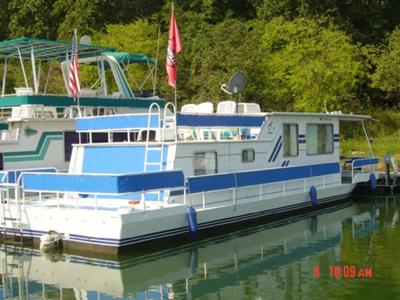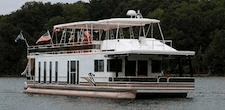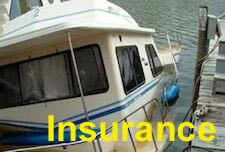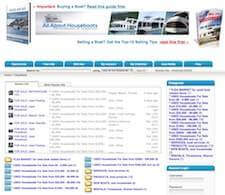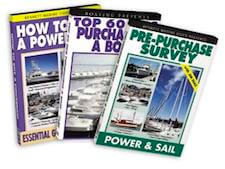
Free Houseboat Tips and Lessons - Check or Charge the Batteries First!
by Jim Mcneese
(Heber Springs, ARK, USA)
Todays free houseboat tips and lessons is to check and charge the batteries first. From now on it will be my first step in diagnosing 12 volt electrical problems on my houseboat.
It all started a while back when I bought me a new am/fm, cd, stereo marine radio a couple years back to replace the one that just quit working.
The new radio was working fine, and then one day it just stopped. I checked everything I could check. Bought a 12v test light to make sure I was getting power and I was.
So $150.00 later I'm installing a new radio. Guess what. It doesn't work either. Being frustrated and not wanting to throw anything or anyone over board, I went on to another project.
The project I decided to move on to was charging the batteries, and you'll never guess what happened next, my new radio started playing.
"Stupid is, as Stupid does" Forrest Gump.
Moral of this story, invest in an ohm volt meter and learn how to use it. However bright the test light showed was not enough to power the hi-tech radio system.
It cost me $150.00 to learn that lesson, however I do like my new Sony Radio vs. the old one. Ha Ha Ha
Capt Jim, Heber Springs marina, Ark.
 increase sales and profits with targeted traffic? Act now to get our 1/2 price sale, limited offer |
Reply - Answer
Well Jim, I appreciate you sharing your story, since I'm sure we have all done some "stupid, I should have checked first" kind of things in life. And it takes a real man to "own" up to it on the Internet. I tip my hat to you. :)
Now onto your moral of the story, it is a valuable one since it just goes to show that there was enough voltage to
Like you said, I also found out early in my boating career that a multi function voltmeter was a good investment and definitely a necessity to have on board.
The marine environment, water, humidity, salt air, and the rocking motion all tend wreak havoc on the electrical systems aboard houseboats. A voltmeter is a great diagnostic tool.
I guess some other lessons to be learned are how to make proper and long lasting electrical connections. On a boat, it's important "to do it right, the first time". Here are some simple tips that I have learned in all my travels:
* Be sure to use Marine Grade wiring for your houseboat.
* Insure 12v electrical systems have fuse circuit protection.
* Use the proper size of electrical terminal connectors.
* Use the correct marine wire gauge size for the application.
* In humid moist environments, use Heat Shrink tubing.
* Adequately support all cabling and wiring every 12-18"
* The ground wire and connections are equally important.
* Long lengths of wire & cable are subject to voltage drops.
In closing, as you can see there is plenty of different aspects to "marine" electrical systems that can take a lifetime to master. One of the easiest ways I found to learn all about houseboat maintenance and repairs is to watch educational videos and dvds at home.
Lastly, hopefully some of our readers will share and post comments about their houseboat tips and lessons learned. Feel free to use the "Click here to post comments." link found near the bottom of this page.
Thanks again for sharing, IAN from all-about-houseboats
Free Bonus Offer |
